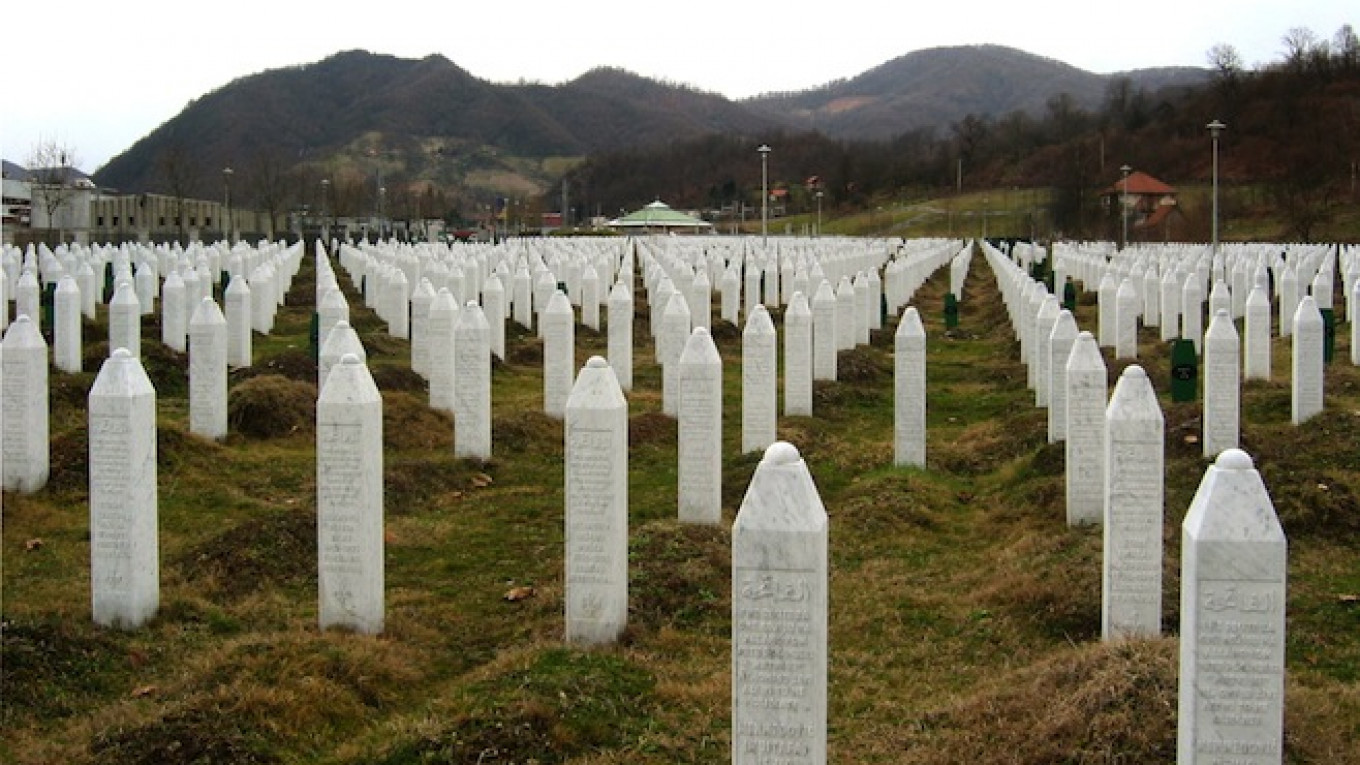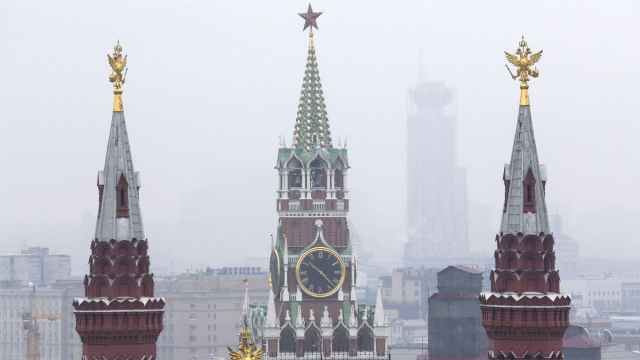UNITED NATIONS — A draft United Nations Security Council resolution commemorating the 1995 Srebrenica massacre does "not seek to bring up painful divisions nor point the finger of blame," Britain said on Wednesday as Russia pushes a rival text it considers balanced.
The British-drafted resolution has angered Bosnian Serbs and Serbia, who branded it as "anti-Serb" and sent a letter of protest to the United Nations.
The British draft strongly condemns the genocide at Srebrenica and any denial of this genocide, while the Russian text instead condemns "the most serious crimes of concern to the international committee." Both drafts were seen by Reuters.
"This is the moment for the Security Council to show through this resolution that we are committed to making 'never again' a reality," Britain's U.N. Ambassador Matthew Rycroft told a Srebrenica memorial event at the United Nations on Wednesday.
On July 11, 1995, towards the end of Bosnia's 1992-95 war, Bosnian Serb forces swept into the eastern Srebrenica enclave, a U.N.-designated "safe haven." They executed 8,000 Muslim men and boys in the days that followed, dumping their bodies into pits.
Serbia acknowledges that a "grave crime" took place and adopted a declaration condemning the massacre in 2010 as it sought closer ties with the West, but stopped short of describing it as genocide. Its president at the time, Boris Tadic, attended the 15th anniversary commemoration.
The U.N. war crimes tribunal for the former Yugoslavia has ruled the massacre — the worst mass killing on European soil since World War Two — was genocide.
Twenty years after the war ended, Bosnia remains a fragile state reliant on external aid, its economy hobbled by a complex and unwieldy power-sharing system and tensions between its two constituent republics.
Russia's Deputy U.N. Ambassador Petr Iliichev described the British draft on Tuesday as "divisive" because "it focuses on only one aspect of the conflict." He said the Russian text was "more general and more reconciling."
U.S. Ambassador to the United Nations, Samantha Power, told the commemoration event at the United Nations on Wednesday that the Srebrenica genocide must never be forgotten.
"Those who deny the genocide in Srebrenica today only embarrass and humiliate themselves," said Power, who was a 24-year-old journalist in Bosnia when the massacre took place.
"Let me simply appeal to all gathered here that the resolve induced by the horror of Srebrenica be extended not only to commemorating the past, but to do far more to prevent genocide and mass atrocities in the present," she said.
A Message from The Moscow Times:
Dear readers,
We are facing unprecedented challenges. Russia's Prosecutor General's Office has designated The Moscow Times as an "undesirable" organization, criminalizing our work and putting our staff at risk of prosecution. This follows our earlier unjust labeling as a "foreign agent."
These actions are direct attempts to silence independent journalism in Russia. The authorities claim our work "discredits the decisions of the Russian leadership." We see things differently: we strive to provide accurate, unbiased reporting on Russia.
We, the journalists of The Moscow Times, refuse to be silenced. But to continue our work, we need your help.
Your support, no matter how small, makes a world of difference. If you can, please support us monthly starting from just $2. It's quick to set up, and every contribution makes a significant impact.
By supporting The Moscow Times, you're defending open, independent journalism in the face of repression. Thank you for standing with us.
Remind me later.






